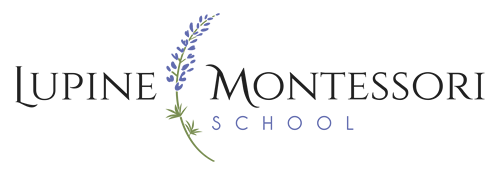Each Montessori program is comprised of a three-year cycle. In their first year, children act as explorers. They are exposed to new information and skills. They investigate their classroom and keep a close eye on the older students to follow their example. When they enter their second year, students with one year under their belt become experimenters. They know the material and find ways to dig deeper, often with their peers. In their third year, these capstone students are the experts. They research and report confidently while taking on a leadership role in the classroom.
Upper Elementary Outcomes
Life Skills - Personal Development
Follow classroom rules and directions
Demonstrate attentiveness during lessons
Participate and lead discussions
Work independently
Manage time effectively
Work cooperatively and productively with others
Pursue tasks to completion
Organize work and materials
Accept constructive criticism
Help create a collaborative and scholarly class atmosphere
Initiate appropriate and challenging work
Demonstrate curiosity and awareness
Life Skills - Social Development
Cooperate with peers and adults
Demonstrate respectful behavior
Offer support to others
Advocate and communicate needs effectively
Exhibit conflict resolution skills
Demonstrate flexibility and adaptability
Express emotions appropriately
Demonstrate self-confidence
Act with forethought; control impulsivity
Accept responsibility for actions
Show a positive attitude and encourage classmates
Understand the importance of community
English Language
Communicate details in an organized, sequential manner
Use age-appropriate articulation and verbal expression
Use a dictionary, thesaurus, and encyclopedia properly
Read and write in cursive
Use proper punctuation and capitalization
Analyze the grammatical parts of a sentence
Identify words in study (compound words, affixes, synonyms, antonyms, homophones)
Reading
Demonstrate comprehension of reading material through oral and written work
Read orally with fluency at grade level
Read and distinguish between a variety of literary genres
Writing
Engage creative writing tools for poetry writing
Conduct research using research tools
Understand and demonstrate the writing process with note-taking, rough draft, and editing
Create narrative and report writing
Produce a bibliography and cite sources
Execute oral presentations
Mathematics
Understand numeration and place value
Demonstrate math fact fluency
Demonstrate abstract addition/subtraction/multiplication and division with whole numbers
Understand the order of operations
Round numbers and estimates
Apply problem-solving strategies through word problems
Demonstrate mastery of fractions: equivalence/simplifying, and all operations
Demonstrate mastery of decimals: all operations, conversions with decimals and fractions, percentage
Demonstrate use of all operations of negative numbers
Demonstrate the use of measurement: linear, mass, volume, temperature, money
Demonstrate the use of graphs: line graphs, bar graphs, circle graphs
Demonstrate the use of writing algebraic expressions solving 2 step equations, graphing ordered pairs (pre-algebra)
Demonstrate the use of exponents: powers of 2, 3, and 10, add, subtract, multiply, divide, rules of powers
Demonstrate squaring & cubing: notation of squares and cubes, squaring a sum, cubing a binomial and trinomial, square root, cube root
Cultural Arts
History
Demonstrate knowledge of the history of the universe/ geological periods
Demonstrate knowledge of the fundamental needs of human beings
Demonstrate knowledge of early human history
Demonstrate knowledge of world history - civilization, conflicts, and culture
Demonstrate knowledge of United States History
Demonstrate knowledge of the different types of government
Geography
Demonstrate the use of geographic reference materials
Demonstrate knowledge of political geography
Demonstrate knowledge of physical geography-topographical features
Demonstrate knowledge of economic geography- production and consumption
Demonstrate knowledge of the Solar System
Demonstrate knowledge of Earth Science: geology, oceanography, meteorology, environmental science
Demonstrate knowledge of Physical Science (chemistry and physics): the periodic table, atomic structure, forces of motion, energy, simple machines
Science
Complete the presentation of the Timeline of Life
Demonstrate knowledge of the introduction to the five animal kingdoms
Demonstrate knowledge of animal classification
Demonstrate knowledge of plant classification
Understand the human body systems and their functions
Demonstrate understanding of Ecology: characteristics of life, evolution, and adaptation
Demonstrate the use and care of a microscope
Demonstrate knowledge of the scientific method to carry out experiments
Understand cells: cell structure of animal and plant cells
Fine Arts
Recognizes the periods of Art: Renaissance, Gothic, Romantic
Produce oral and written expression about personal artwork
Identify the elements of art design: line, shape, perspective, value, color, texture
Use a variety of media: pencil, pastel, acrylic, watercolor, clay
Identify and use the principles of art design: emphasis, contrast, balance, movement, rhythm, pattern
Demonstrate the fundamentals of music: staff, measures, notes, scales, dynamics
Participate in the theatre: writing plays, acting out skits, set building, organization, memorization

